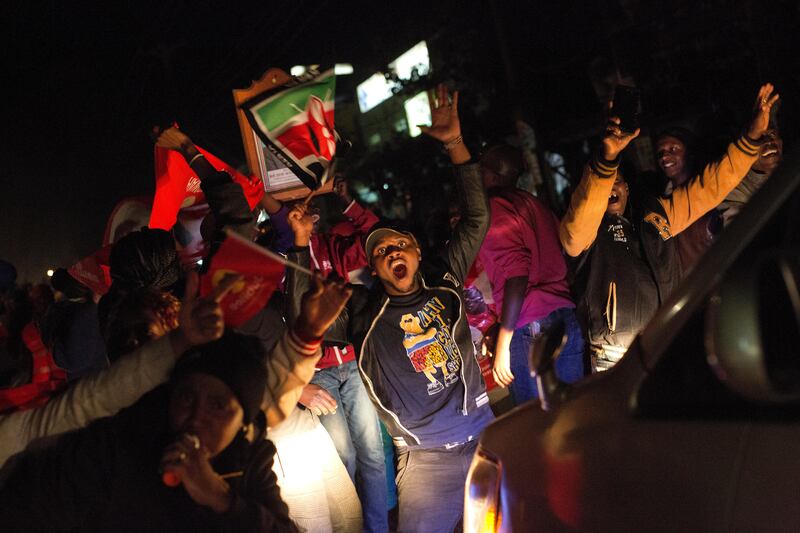After an election plagued by violence and accusations of fraud and hacking, the Kenyan opposition rejected on Friday the announcement of the reelection of President Uhuru Kenyatta by Independent Electoral & Boundaries Commission, calling Tuesday’s election “a charade”.
According to official figures, the incumbent Mr Kenyatta secured 54.27 percent of the ballots cast, while his rival, Raila Odinga, won 44.74 percent.
With Kenyatta receiving more than 50 percent of the votes, he will not be forced into a second round of voting.
The five-party alliance backing opposition presidential candidate Raila Odinga said the commission's announcement of Kenyatta’s victory even after it raised concerns about “several serious irregularities and anomalies” over the vote. The coalition said Odinga, 72, won the election and said his supporters wouldn’t accept the result.
“I can tell you, Kenyans always rise up,” Senator James Orengo, the alliance’s deputy chief election agent, told reporters in the capital Nairobi. “The resilience of Kenyans to deal with impunity, to deal with violation of their rights, every time those rights have been trampled upon, they’ve always risen up.”
_______________
Read more:
[ Kenya braced for violence before election announcement ]
[ Two killed in riots after Kenya's opposition claims election was rigged ]
_______________
The opposition’s dispute over the results sets the stage for a repeat of the election-related violence that has stalked East Africa’s biggest economy since Kenya became a multiparty democracy in 1991. In the worst outbreak, ethnic clashes left at least 1,100 people dead after a disputed 2007 vote.
“There are so many questions unanswered, it’s very easy to come to a conclusion that there is mischief going on,” said Dismas Mokua, an analyst at Nairobi-based risk advisory firm Trintari. “The failure to announce results at the constituency centers raises so many questions about transparency.”
The normally bustling streets of Nairobi, the business hub, have been largely deserted since election day as residents stayed home bracing for trouble and security forces deployed in the city center.
“Kenya is at a standstill,” Kiprono Kittony, chairman of the Kenya National Chamber of Commerce & Industry, told Bloomberg on Friday. “We are hoping there will be a conclusion to this today and for people to be able to go back and start earning their livelihoods because this era of suspense is very, very devastating economically.”
With preliminary results tallied from all but 341 of the nation’s 40,883 polling stations, Kenyatta has 8.17 million votes, compared with 6.76 million for Odinga, according to the IEBC’s website. Candidates need a simple majority along with a quarter of the votes in half of Kenya’s 47 counties to secure victory.
Odinga described the preliminary results as “fake” and said hackers gained access to the election computer system by using the identity of the commission’s technology manager who was murdered in late July. IEBC Chairman Wafula Chebukati said on Thursday that hackers tried and failed to breach the voting system.
“We want to tell Chebukati to stop cooking results,” Babu Owino, a member of Odinga’s coalition, told reporters on Friday. “We will do everything humanly possible to ensure that Raila is sworn in.”





